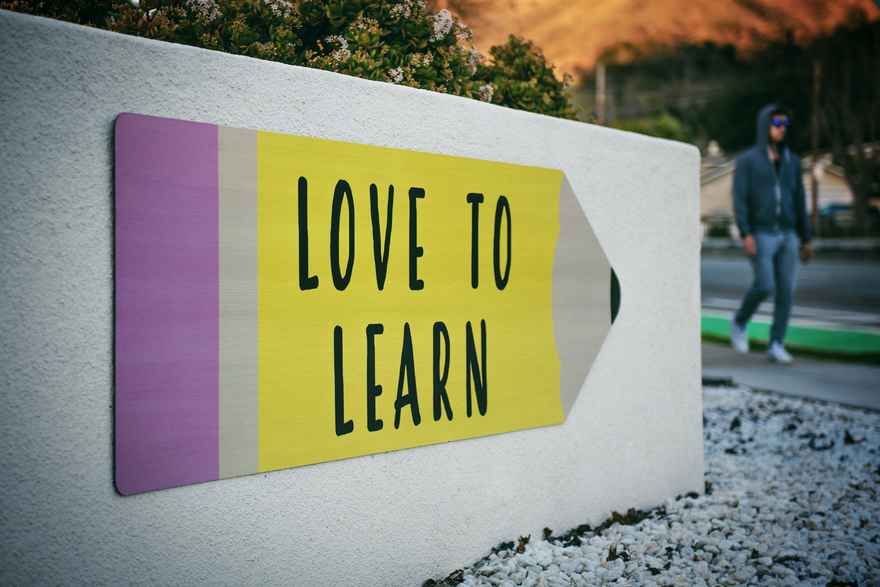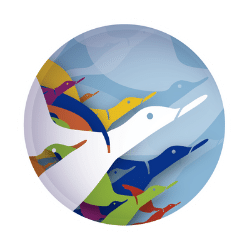Gaia YES! (Youth Education for Sustainability) Seminar 2: ‘Holistic Sustainable Curriculum for Schools’

On 20 to 24 April 2021, the second seminar of GAIA YES! (Youth Education for Sustainability) took place. This seminar on a Holistic Sustainable Curriculum for Schools was organised and facilitated by our project partners Gaia Nederland and Permacultura Mediterranea. For the first time, GAIA YES! opened up to a larger audience and invited speakers from several countries. This article written by Gaia Nederland reviews the programme of the first day, which addressed the learning culture and the school community.
Sustainable Learning Cultures
Silke Weiss kicked off the seminar by taking us on a journey through the complexity of change and by sharing insights on how to work with change in schools. ‘Our school systems are collapsing because they don´t match anymore with our current society. We are living in times of VUCA (Volatility, Uncertainty, Complexity, Ambiguity) and we really need to think about which changes we need, to be able to create Vision, Understanding, Clarity and Agility.’ With examples of how Kodak, BMW, IBM Watson and AirB&B changed the way we relate to each other, how we move, how we discover illnesses and book our hotels, Silke showed us how disruptive developments have been mostly underestimated. The same happens when we introduce changes at school.
To help schools transform towards a sustainable learning culture, Silke Weiss created a development tool based on the four quadrants of Ken Wilber, referring to the individual, collective, inner and outer structures of a culture (see picture). ‘If something changes on the outside there will also be inner changes which need to be looked at. If you for example change the way children learn to a self-organized approach in a free space, this will certainly generate fear and resistance in teachers.’ In other words, if one of the quadrants is changing, the whole system will change.
To understand how the four quadrants work in practice we got to explore four basic questions on learning.
- What is my motivation to learn something? (inner – individual)
- What strategies & methods do I use to learn? (outer – individual)
- Which atmosphere supports my learning? (inner – collective)
- What structures/environment do I need? (outer – collective
It was a nice way to get to know each other and understand our differences and similarities.
Have you ever discussed these questions with colleagues or fellow teachers?
Another important tool Silke Weiss talked about is Spiral Dynamics. It is based on research in psychology and stages of evolution. Spiral Dynamics gives you insights into the value systems present at school. It is especially interesting for school leaders to understand multiple perspectives, appreciate the differences in values and find solutions that work for all. Through a questionnaire people can identify the value system they are operating from. This way you can identify the cultural focus of your community and decide where you collectively want to go.
(Are you interested in the English or Dutch version of these school development tools? Please contact henk@gaia-nederland.nl)
Community Building at schools
In the afternoon people from several schools and education projects presented different approaches to building community.
Gaia Skool Estonia uses experiential, outdoor & project based learning involving head, heart and hands to build community at school.
The Wageningen University is occupied with the teacher education for sustainable development, focussing on a transdisciplinary curriculum, leadership, innovation & a whole school approach. Competences they investigate concern coping with complexity, uncertainty, climate emotions, teacher challenges and reconnecting with the environment.
Cleantech on the other hand builds local connections between education, business and the local government through competitions. Pupils and students work with companies to find innovative solutions for specific challenges with which they can win a price.
The Hackathon Hanze Hogeschool Groningen is a time intensive event where business professionals present a real challenge to people from different fields of experience. It is a design driven method in which participants collaborate together to design a product solution for a real life issue. The process follows specific steps: Empathize (with the user) – Define (the user´s needs) – Ideate (come up with creative ideas) – Prototype (show your idea) – Test (what worked and what not).
As you can see, community building can happen in many different ways!
This first day ended with group discussions on the question ‘How do we live in a community at schools and how can we promote participation and collective intelligence?’. In this round the challenges we face became clear, namely:
- integrating sustainability in the daily school life
- the importance of the place & setting, and of participatory, experiential & project based learning to build community
- bringing business closer to education
How do you build community at school and which challenges are you facing?
The next seminar of Gaia YES! will take place in the Autumn of 2021. We are looking forward to meeting you there!
This project is co-funded by the Erasmus+ Programme of the European Union.



